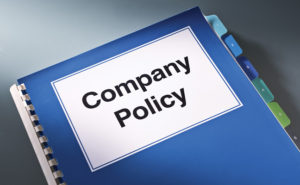
PHOTO: YINYANG/ISTOCK / GETTY IMAGES PLUS/GETTY IMAGES
We asked Pest Management Professional’s columnists and editorial advisory board members to offer some advice for what should be included in emergency preparedness policies, but isn’t in many. This question comes at a time when owners and technicians are working during the coronavirus (COVID-19) pandemic. Here are some of the experts’ responses — including a few extra that didn’t make it into our May 2020 print edition. Please share your advice in the comments below or send your comments to pmpeditor@northcoastmedia.net.
PMP’s Regular Contributors
Greg Baumann: “A quality assurance program to monitor the exhaustion exhibited when shortcuts are taken on the use of personal protective equipment (PPE). This is a difficult time, requiring long hours and additional PPE usage beyond what labels require to protect against viral infection. It can lead to exhaustion, and the first indication can be relaxing the use of PPE.”
Pete Schopen: “A policy for people working from home. We had to add that policy to our handbook after one of our inside sales people was concerned about picking up COVID-19 due to preexisting health issues.”
PMP’s Editorial Advisory Board
“Several alternatives to meeting in a room. Email is a horrible substitute for real-time, face-to-face communication. If no one has been designated to take charge of various categories of response, decision time will suffer horribly. Every company has a person who ultimately is in charge, but they will be quickly overloaded with decisions that are best made with input from several other people. Many companies have had to scramble to become proficient in real-time, multiple-participant video chat formats. It will be best to choose several, and practice them when it isn’t critical.”
“Carrying large inventories of some supplies is financially detrimental, but for some inexpensive personal protective equipment (PPE) like gloves, you can carry a given surplus relatively painlessly.”
Michael Broder: “Personal protective equipment (PPE) is essential. I don’t think we will ever again be able to say that we have enough in stock. I look back now to February, and remember seeing signs on pharmacies that they had masks in stock. Hindsight is a wonderful thing. I never would have imagined that in this country, I would have to spend nearly two weeks — full time — just to get the PPE needed to protect my team.”
Doug Foster: “Written scripts to handle the various range of emotions that customers and co-workers are going through and that each of us confront every day. Taking the pandemic as an example, some clients and customers are treating the situation as business as usual, whereas others are at the other extreme, viewing everyone as a potential carrier of the virus.”
Paul Hardy: “Communication seems to be the biggest problem, based on calls and discussion during the coronavirus pandemic. Have a chain of command in place, and communicate frequently to make sure everyone is getting the same information.”
Kurt Scherzinger: “A process in how you will get the information to everyone. Most focus on the plan, but not on how it will be delivered if needed.”
Dr. Faith Oi: “Practice helps alleviates panic. We run pesticide spill drills at Pest Management University because reading a document about how to clean up a spill — even watching a video — is not the same as executing under pressure. I remember attending the keynote presentation at the University of Florida, Institute of Food and Agricultural Sciences Extension Symposium years ago. The speaker talked about how one’s ability to function could drop two grade levels in a crisis.”
Dr. Stephen Vantassel: “I haven’t read enough company policies to be sure. But I would suspect many don’t have policies on societal catastrophes such as loss of electricity, flooding, wildfires, earthquakes, etc. I also suspect they don’t have policies for when the CEO dies unexpectedly. I would think that most small companies would be paralyzed. I used to sell life insurance. People don’t buy it because once they do, they know they will die. So, they decide to not buy it and live forever.”
Read more COVID-19 coverage here: MyPMP.net/COVID-19
Leave A Comment